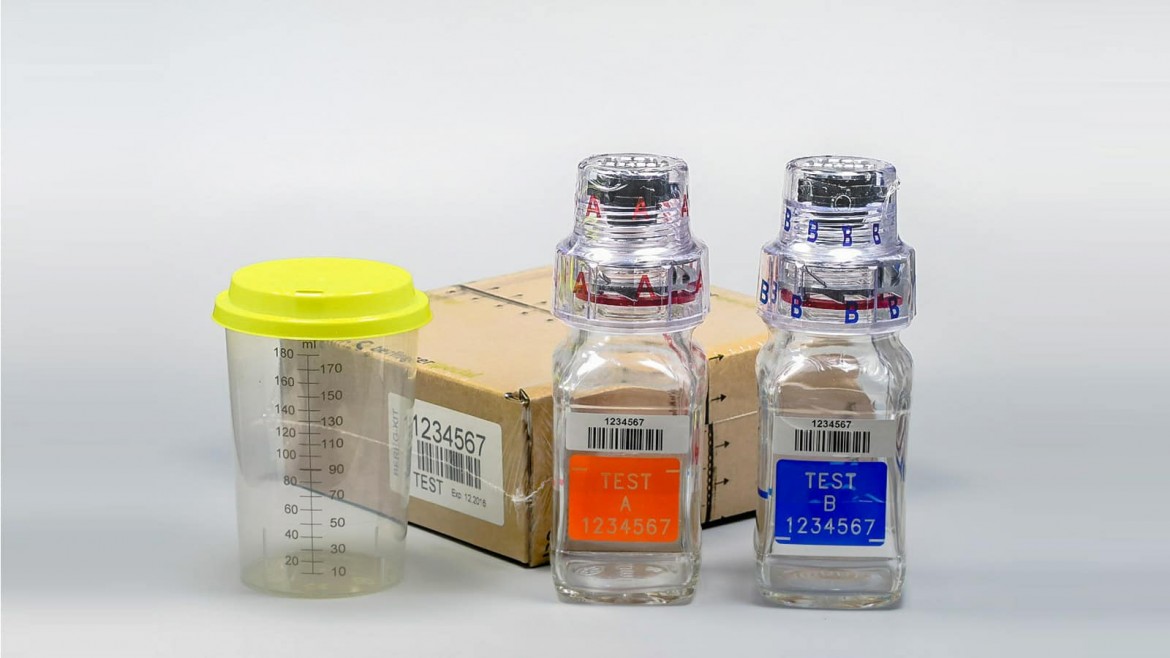By IMMAF.org lead writer, Jorden Curran Saverio Longo, President of the Italian Grappling and Mixed Martial Arts Federation (FIGMMA), believes that his country’s national governing body for MMA is showcasing the best anti-doping programme for professional MMA outside of the groundbreaking UFC-USADA partnership. In recent months FIGMMA has informed IMMAF of three pro level anti-doping violations and subsequent suspensions for athletes competing within standout European promotion, Venator Fighting Championships, Italy’s leading professional MMA organisation. Suspended athletes included domestic talents Francesco Bocca and Raffaele D’eligio, plus American UFC veteran Cody McKenzie who refused to provide a sample (see report here). “The Italian Grappling and MMA Federation believes that the use of doping substances in sports constitutes a very serious violation of the principle of loyalty in sport,” a statement read from the FIGMMA President. “Doping fraudulently alters the skills of the athlete, introducing an unjust and incorrect advantage over other participants. Moreover, it produces, through an undue manipulation of the body: a damage to the psycho-physical health of the athlete with negative repercussions on the social level.” Thanks to ties with the Italian National Olympic Committee, anti-doping procedures first took place under FIGMMA in 2012, ordered by the Ministry of Health and performed by the Sport Medical Federation for the official national amateur MMA championships. While recognised by IMMAF at the international level, FIGMMA’s mixed martial arts regulation is supported at the national level under the Italian federation for judo, wrestling, karate and martial arts (FIJLKAM) – an Italian Olympic Committee (CONI) member, established in 1902. The high level of recognition opened the door for testing to be introduced to professional MMA in Italy during 2017, including out-of-competition testing, arranged by the National Anti-Doping Organization (NADO Italy) upon the request of FIGMMA and performed by the Italian Sports Medical Federation. Testing in Italy is undertaken in accordance with the WADA Code, in collaboration with NADO Italy – an affiliate of the World Anti Doping Agency (WADA). “The policies put in place by FIGMMA and NADO Italia represent the biggest anti-doping programme in place for Professional MMA outside of the UFC/USADA,” Longo highlighted.“Including in-competition and out-of competition tests, we are showing how the use of banned substances is spread among professional MMA athletes in Europe.” FIGMMA’s President believes that the body is exposing the use of banned, performance enhancing substances within prominent European MMA events, many of which do not have anti-doping in play. He expresses that a unified effort for regulation under national governments and top sporting authorities (WADA/GAISF) is the best and most functional way to ensure that clean MMA is enforced, universally. “All members of the MMA community should be united in supporting IMMAF in its request of becoming a signatory of the WADA Code and member of GAISF, as only a unified effort from the Sanctioning Bodies (National Federations of IMMAF), the Olympic Committees and WADA can develop an anti-doping programme available to all promoters in each country that can effectively stop the use of performance enhancing drugs in our sport.” IMMAF implemented its anti-doping policy based on WADA standards in 2015. In-competition testing was introduced at international amateur MMA tournaments, beginning with the 2015 IMMAF World Championships. The IMMAF anti-doping rules are based on strict liability, essential for the health and safety of the sport of MMA and its participants. Anti-doping is in line with IMMAF’s sporting values and the organisation has worked to maintain above and beyond compliance with the WADA Code. IMMAF appointed internationally renowned expert consultancy, Sporting Integrity Ltd, to advise on and develop its anti-doping policy and program. Click HERE for IMMAF’s anti-doping policy statement.]]>

